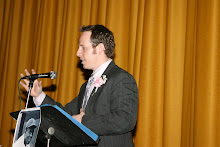MAPPING CURRICULUM
As the year winds down, we need to gather a list of things we need to prepare before we leave for summer. The investment here is simple. The more we put in now, the better off we will be next year. The ideal goal is to have everything in place next year so we can purely focus on getting to know our students both instructionally and as a person and improving our classroom to meet all of their needs. I see everyone mapping out a curriculum to set a strong pace for next year and to best prepare our students for the next level. In some departments, we are best preparing our students for the state test. The map will ensure that we push our students and prevent us from slowing down to meet the needs of a few students. This is how our higher level students get bored and our middle level students become easily distracted. Heck...I get easily distracted if I keep doing the same thing for too long with no new challenges presented to me. If you know what you have to cover and how much time you have to enlighten your students. You know when you are running short of that. In a way, you are failing the students by not maintaining the high expectations they deserve by sticking to the predictive or exaggerated amount of time you anticipated it would. Please do not mistake falling behind as a day or two or maybe even up to a week. I'm talking two or more weeks. Assemblies, meetings, tests, and other outside circumstances slow down pacing which is understandable. As for absences, low level students, and other individualized problems, the rest of the class must continue forward. If their pace needs to be slowed down, then higher level thinking in previous covered material needs to be exposed to these children.
Each day, each of your children needs to be challenged at the appropriate level. If it is not planned out properly, it can cause a student to shut down. This is not only in reference to higher level students, but also the middle and lower level ones as well. Trying to teach a topic that is over their head can cause this to happen. Hence, this is why diagnostics, interim assessments, and conferencing can be so helpful. It is also the reason why your instruction should improve month by month as you get more familiar with your students.
The mapped out curriculum helps you avoid having to plan what will be covered next and allows more time for you to look at your children and their needs as you go from day to day. Obviously, a lesson plan needs to be developed daily. If done right, a weekly basis is more efficient. I'm not taking away from preparing for a day. I am merely pointing out that the map allows for you to go even more in depth on your daily planning instead of making sure you are covering everything and steering the learning in a direction.
GROWING SCHOOL
The great things I am seeing is how well each of you owns the work we needed to put forward. So many people are coming up with so many amazing ideas. For instance, the ELA department has discovered a way to make the targeting system to be more accurate. The math department developed data to set up new targets for next year on the CEP. The social studies and science department have mapped out a plan and a system to manufacture data to measure progress.
Our next steps are to develop a list of the needs of each department. An important item is the professional development plan for each department and for the overall school. This way, we can gather resources and consultants to support our needs. There are no better people to identify our weaknesses then us. Our weaknesses only provide direction on how we can take the school to the next level. If we keep in mind the need for our students to read and write more often throughout the day, be exposed to more technology, and develop their problem solving and inferencing skills, we can create a relevant and worthwhile plan. The more students articulate their thoughts through writing, the stronger they will be in processing information and critically thinking. It is one thing for our students to say an answer but it is a higher challenge for them to write about it. Why do colleges and universities move more to papers than assessments? The more our children write, the more developed they will be at researching, supporting ideas, and communicating their thoughts. These are skills that are needed in all subject areas.
I am extremely excited about what will come out of these next few weeks of planning. You all are doing a tremendous job. Remember, the more we develop now, the better idea we will have next year. The more in depth we are in the next few weeks, the stronger chance we have of focusing on instruction. This is the core of how we can bring success to all of our children. Keep up the great work!
ANNOUNCEMENTS FROM THE DISCIPLINE COMMITTEE
The discipline committee meets every week from 3:15 to 4:15 to address issues surrounding the structure, implementation, and effectiveness of the school-wide discipline code. In our last meeting, we finished revising our school-wide consequence system.- Planning for Next Year: The discipline committee has begun planning for next year. We have just finished revising the school's consequence system. Next week, we will begin looking at our interventions more closely and improving them where necessary.- Meetings this Week: Because of the half day for professional development on June 12th, the discipline committee will meet on Wednesday, June 11th from 3:15 to 4:15. In addition to Wednesday's meeting, we will try to meet during the afternoon on Thursday.
CHILD STUDY TEAM
As we approach the last several weeks of the 2007-2008 School year, the Child Study Team has discovered there is much to celebrate. We are only approximately 10 weeks old. In this short time, with the assistance and the enthusiasm of our educational community, we have made a wonderful start to what clearly shall become a strong working community within our school.
Our Grade Team Leaders have helped to direct their teams to complete the Yellow Referral to Child Study form, and these forms have safely made their way to the Team’s table.
Those completing the forms have done an excellent job of using it wisely and adding individual touches as necessary—writing in the margins, adding a choice that was not on the form, writing-in precise descriptions of aspects of children that could be difficult to describe.
As these forms were completed, a Case Manager was selected. Perhaps this was the person who knows the child the best; perhaps the person chosen was the Grade Team Leader. Repeatedly, what the Child Study Team members noticed, was that each Case Manager was ready, willing and able to share with us a few “snapshots” of the child. As we asked questions and engaged in critical conversations, we were all pleased with the answers that emerged.
These answers gave us the information needed to reach out to our students with new wisdom and to frame their possibilities for success with more clarity and more compassion.
As we as a community begin our “September planning” thinking, let us continue to remember that the Child Study Team is a work-in-progress. Your ideas, concerns, recommendations and questions are still requested and appreciated. Let us know what you think; Let us know what you believe we “oughta try”; Let us know what you may disagree with ; Let us know your ideas for improvement. This is our school’s team. How wonderful it is that thus far its shape and process has been created by all of us. Let us continue to share our ideas so our team can move from great to excellent.
We as a team stand ready to listen and to respond.
COMMUNITY CORNER
There is a Father’s Day Brunch planned for June 11th. We invite all fathers in our community to stop in and be appreciated, this includes staff as well. Graduation has been finalized at Riverbank State Park for Monday June 16th, 2008 at 2:00pm. The prom is scheduled for the same day so we will need chaperones. If you are interested, please see Ms. Negron. We will be sending out letters within the week to communicate to families what the status of their children is for next year. Thank you and have a great week.
ATTENDANCE
This Attendance Interval report lists the number and percent of students whose Year-to-Date (YTD) attendance falls within each attendance interval. That is, the report calculates the number and percent of students whose YTD attendance rate is 100% (Perfect attendance), the number and percent of students whose YTD attendance is 90% through 99%, and so on. The report includes students on register as of the effective date; the YTD attendance is calculated as of the effective date.
100% (Perfect) 12 3.5
90% TO 99% 203 59.8
80% TO 89% 71 20.9
70% TO 79% 27 7.9
60% TO 69% 14 4.1
50% TO 59% 6 1.7
40% TO 49% 3 0.8
30% TO 39% 0 0.0
20% TO 29% 1 0.2
10% TO 19% 1 0.2
1% TO 9% 1 0.2
0% (No Show) 0 0.0
Total Students 339
We must continue to remind our students that attendance counts to the last day of the school year (June 26th). Please encourage students to come to school and continue with instruction.
May your preparations meet your vision, your colleagues provide information, and no risk blinds you from your mission. Have a great week….
Birthdays:
Rachel Levene May 1st
Danita Scott May 2nd
David Deatherage May 2nd
Leslie Tatum May 12th
Rosa Calvet May 15th
John Ciano May 19th
Cassandra Williams May 21st
Zoe Markoupulus May 28th
Quote of the Week
“If I have been of service, if I have glimpsed more of the nature and essence of ultimate good, if I am inspired to reach wider horizons of thought and action, if I am at peace with myself, it has been a successful day.” --Alex Noble
Sunday, June 8, 2008
Subscribe to:
Post Comments (Atom)





No comments:
Post a Comment